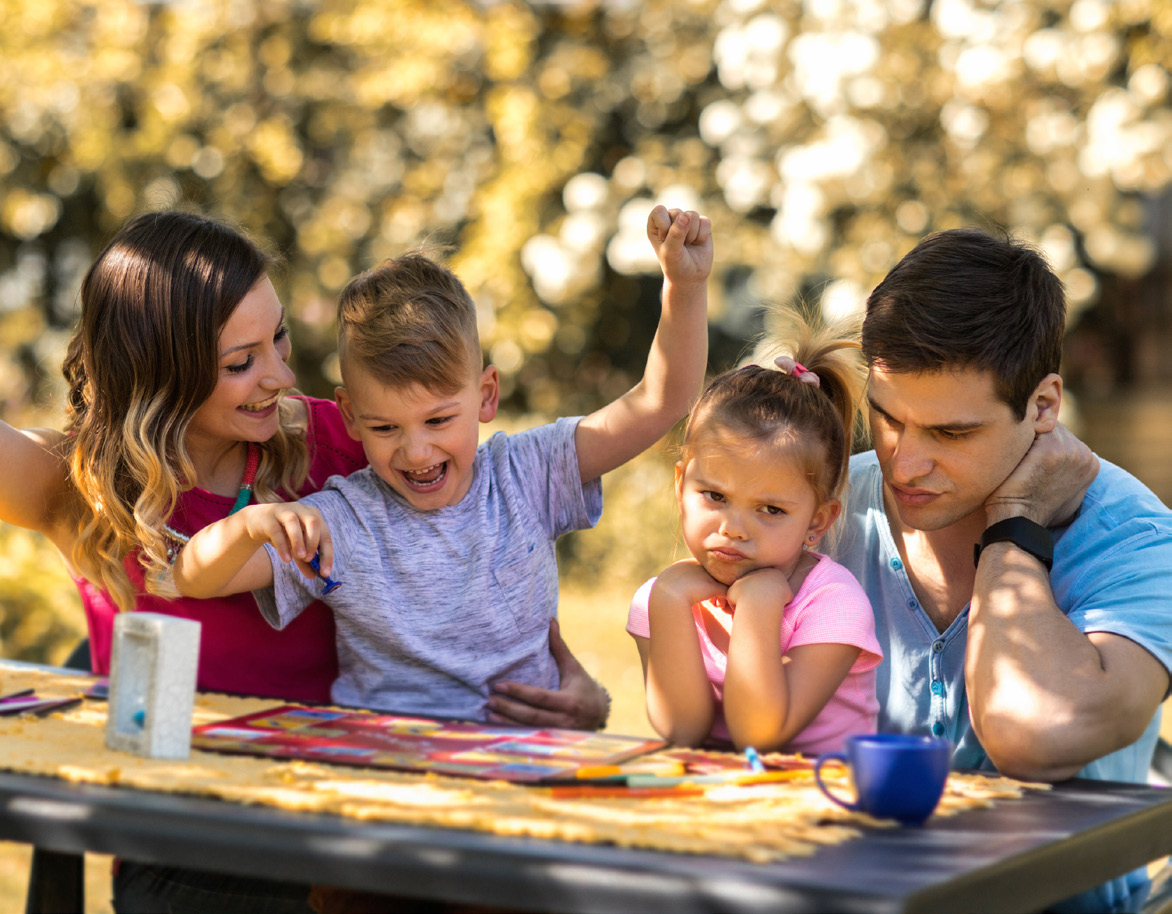
Spring 2020
Download a PDF of this edition.
Holding down the fort and lifting up the household
Parents all around the world have experienced an unprecedented challenge in caring for, educating and reassuring their children during a time of global uncertainty. With so many disruptions in their daily routines, social circles and expectations, it is not surprising for children to have difficulty adjusting.
Develop expectations within uncertainty
What rules need to be established and posted for everyone to know, and what are the rewards for following those rules? Create household rules together as a family and have the rules clearly posted with pictures, so everyone understands what is expected and what is acceptable.
Keep days split up
Whether or not children are home all day, expectations of an entire day of “good behavior” might not be realistic. Break the day into multiple sections (AM and PM; some children may require shorter periods of time), after which a child can receive a small reward. Allow children to bounce back from a rough period and to turn it into a "pancake day" ("We can flip today over and start again after lunch.").

Establish a shared, hopeful vision for your household
Together as a family, draw a picture of your optimistic future vision of your family's dynamic. These can include things such as nightly sit-down family dinners, playing board games together or taking regular nature trips. Once you have the future vision, begin laying out doable steps to move towards each vision.
Remember what you want to see more of
Good behavior might not be on the list of expectations (a surprise act of kindness), or might be connected to an undesired behavior (coming to a parent to admit doing something wrong). It is crucial that these achievements are recognized ("I'm sorry to hear you did that, but thank you for telling me about it. Let's figure out how to make it right."). These teachable moments can help make the most of momentous times.
What is Positive Behavior Support (PBS)?
Positive Behavior Support is a package of evidence-based strategies to improve quality of life and decrease challenging behaviors. It teaches people new skills and alternative responses to replace challenging behaviors. This approach is positive, proactive and focuses on preventing challenging behaviors before they occur.
Purpose of the PBS Program
The purpose of the PBS program is to support youth with serious emotional disturbances who are at risk of out of home placement to be successful in their community environments. We work with the individual's team to assess their individual needs and implement trauma informed positive behavior support. Through a person-centered approach, supportive, motivating and inclusive environments for individuals with complex needs are promoted.
Overview of Program Activities
The following program activities can help you prevent and improve challenging behaviors:
-
PBS Brainstorming
- Consulting on how to implement PBS and increase quality of life
-
Technical assistance and mentoring
- Guidance and feedback to professionals
- Solutions for challenging behaviors
-
Person-centered planning
- Develop personal goals
- Create an action plan for achieving goals
-
PBS Intensive Services
- Serve a very limited number of individuals and families statewide
- Individuals must have dangerous behaviors and no services in place to address them and be at risk of out of home placement
- Services typically last 3-5 months
-
Training and continuing education opportunities
- Limited number of trainings offered for professionals
- Social work CEU's

